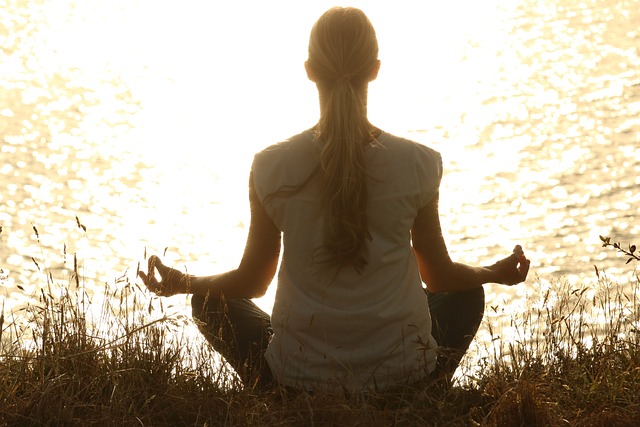You probably heard about this “Purpose” thing if you’ve consumed self-help books and videos. You know, that popular yet vague buzz term for doing something meaningful with your life.
Whether it’s fulfilling yourself in a prestigious or impactful job, building your online brand, devoting your after-work hours to a hobby, entrepreneurship, or promoting a social cause. Undoubtedly, having meaning in life is beneficial, but is it necessary to be happy?
Do you need a purpose to be happy?
While pursuing a purpose can help you feel happy, it might also bring new fears and add stress to life. Therefore, finding the balance between purpose, joy, and peaceful life is essential to increase happiness steadily.
In this article, I investigate the role of purpose in being happy. I will explore the complex relationship between purpose and happiness based on my journey and what I’ve learned from experts and studies in the field.
I’ll discuss the benefits and the challenges of having a purpose and whether you need a purpose to be happy. I aim to help you better understand how to benefit from a meaningful and happy life.
Disclaimer : The information provided in this article is for educational purposes only, and it is not a substitue for professional advice. The article may contain affiliate links. See the full disclaimer for more details.
The benefits of having a sense of purpose
There are many benefits to living a purposeful life. For example, people with a sense of purpose are likelier to be happy, healthy, and resilient than those who seek pleasure 1. Those who pursue purpose even tend to live longer 2. In addition, having a purpose is associated with higher job satisfaction and better academic achievements 3.
I became proud of myself when I found my purpose and got a direction that fit my strengths, needs, and values. It boosted my confidence and satisfaction. For me, it is being a blogger, but it can be anything else for you. Having meaning and faith in life also gave me proportion to the issues and problems I struggled with – in my case, it was chronic pain and symptoms, so now they feel more manageable and even partially healed.
A sense of purpose can motivate you to achieve your goals and feel like you are making a difference in your community, company, or society. Whether you find meaning in your career, master a hobby you enjoy, raise a family, or build your online presence, the meaning of being out there and impacting others or leaving a legacy is uplifting.
The challenges of a purpose-driven life
Finding your purpose takes work, and so does living it. Nonetheless, the most important thing is that the challenges involved in the self-discovery journey are only temporary and manageable. If your purpose seems meaningful and worth pursuing, overcoming the fears and stressful times that come with the new life is possible.
Some of the challenges that you may face when living your purpose include:
More stressful life. When becoming an impactful figure, even as a manager in your company and not in the public eye or on YouTube, it’s very likely that the stress levels would rise. For some, it fuels their excitement and helps them perform better, but for susceptible people like me, it could hold us back. Therefore, it’s essential to be aware of that and use relaxation techniques and journal your thoughts and emotions to calm your nerves while becoming impactful.
Fear of failure. It is natural to fear failure but remember that it’s part of the learning process. If you never fail, you will never learn and grow.
Lack of support. Only some people in your close circles will support your decision to live your purpose. It’s often the case if you choose the nontraditional career path like the creator path. Other people may try to discourage you or tell you that you cannot do it, either because they don’t believe in such a path or they envy your courge to go for it. So, be aware of that. Surrounding yourself with people who believe in you and your dreams is vital to your progress.
Self-doubt. Everyone has self-doubt, which can turn into imposter syndrome and feeling fake in extreme cases. However, it would be best if you remembered that you could achieve your goals by appreciating your achievements and using affirmations. That can help you believe in yourself and overcome any challenge on your self-discovery journey.
Now, let’s look at how finding purpose can impact happiness. Interestingly, the pros and cons of a purpose-driven life led to different forms of happiness, for different people, at various stages of life.
The 3 manifestations of happiness
From what I experienced and how I interpret the experts in the field, there are three formations of happiness: meaning, joy, and stillness. While the first two are highly connected to purpose, finding stillness stands for the opposite.
Read on to find out how to increase happiness in each realm and how to find the balance between all three. That balance is where true, sustained happiness resides.
1. Meaning

Impacting others
Meaning is considered the main road to finding happiness in life. It takes place as part of pursuing a prestigious job where you earn decently and have impact on others as a manager, or senior employee. Influencers and content creators find meaning by giving tips to their followers on how to solve their problems. Teachers, scholars, politicians, doctors, social workers, counselors, life coaches, and therapists are more traditional examples of the same source of meaning – impacting others.
When you help others solve their problems, you feel satisfied and proud. After you become good at solving others’ problems, success usually kicks in, reinforcing you to stick with your purpose.
Learn more how to harness your purpose to maximize success.
These are only a handful of examples, and you can find meaning in what you do, whatever your job is, as long as it feels meaningful to you.
Finding your purpose
Finding a purpose in life is often a long quest. It can be a difficult and sometimes elusive pursuit, but it is worth the effort.
I invested much of my mid-30s in self-exploration, consulting with my friends and a therapist, and trying different things, until I figured out my new path as a freelance writer and content creator. I blog for small businesses, and on this blog. On this path, I found my meaning in the blogging process and by helping others who felt lost like me to reinvent themselves.
It’s all about bringing together your story, the problems, your work energy, and the solution you came up with. It can also be the passions that allow you to enjoy what you do and deliver value to others. So, start exploring your purpose – the sooner, the better. You can begin exploring now with this step-by-step guide.
2. Joy

Joy is another component of your purpose but it can distract you from your purpose, too.
Seeking pleasure vs. enjoying the little things
It all comes down to whether it’s a temporary pleasure that excites you now, like video games or watching Netflix, or joy derived from the mundane things in your life like your work projects, content creation, walking in nature, or even spending good time with friends.
There is nothing wrong with seeking pleasure here and there. Just limit that pleasure so it won’t become too central in your life and hold you back from your goals.
Check this guide to reduce social media time and triple your productivity.
The other part of the equation is the balance between joy and tranquility, often referred to as our neurotransmitters dopamine and serotonin. Dopamine allows us to feel better temporarily, while serotonin regulates our mood and helps us sleep better. 4.
Aligned with the dopamine vs. serotonin effects are the passive vs. active activities. The latter are the ones that help to attain more steady joy. Passive activities can be watching Netflix or scrolling your social media feed, while active activities are reading, working, writing, sports, traveling, or socializing. Of course, both activities can be fun, but the active ones help us grow and enjoy our life sustainably.
Finding your passion
That brings me to talk about your passion – what do you enjoy doing (actively)? What are the little things in life that bring you joy? That could be anything like a project at work, having a good time with your friends, visiting particular places, or a hobby you enjoy. Try paying attention to those to increase your joy from the little things.
While passion and purpose are similar, purpose is something bigger than your joy and usually involves helping others. Learn more about the differences between purpose and passion.
3. Peace of mind

Some people don’t want to live in the forefront and impact too much, and that’s fine. I can understand why. The stress and fears of being in the spotlight can be debilitating. Therefore, a widespread form of happiness is bringing peace into your life.
Simple life
It’s ok to prefer an average job with a decent salary, to have more time to raise the family and chill after work hours. Most people live like that, and it’s perfectly fine. But moreover, others prefer an even more minimal life, so they move to a farm and live from their plants and products.
Others find meaning in religion, spiritual life, and community life. They appreciate what they have and find meaning in praying to God. But, of course, everyone can use some aspect of these lifestyles to balance a more purpose-driven life.
Awareness and relaxation techniques
By Buddhism, materialistic success, like being wealthy and having a lovely house and fancy car, block us from reaching peace of mind. Happiness doesn’t exist, and we should strive to end our suffering. Instead, we suffer from our desires, material aspirations, and other thoughts appearing to us as reality. Practicing meditation and self-awareness techniques is the way to release ourselves from this false reality 5.
That approach of being present and aware can raise the serotonin level naturally. This peace of mind can be unleashed through meditation, but also yoga, exercise, walking in nature, listening to calming music, or using affirmations 6. To benefit from these activities, you need to be consistent, though, so they can help the mind and body to relax sustainably.
Positive mindset
On top of these practices, our mindset needs a shift. The happiness expert Mo Gawdat encourages us in his book “Solve for Happy” (Amazon) to change our mindset from the negative to the positive sides of reality.
One way to do so is to lower expectations. The less you expect from the company you work at, your employer, your marketing campaign, your friends, your spouse, and yourself, the more satisfied and happier you become with the result. If you don’t hit all your goals, be gentle with yourself.
Journal the achievements in your week or good things that happened to you lately. That can help you feel better 7. I tried that popular, proven advice for several weeks and did notice an improvement in my mood.
Also, try to look down on the chain, aka who is less successful or happy than you right now, instead of who performs better or seems happier on your Instagram feed.
We tend to look upper in our social chain, so breaking that habit and looking down in the chain can help you feel happier.
Another method to tune your mind towards happiness is focusing on progress instead of the outcome. According to Dan Sullivan and Benjamin Hardy, authors of “The Gap and the Gain” (Amazon), ambitious people are unhappy as they measure their success by the gap between where they are now and where they want to be. Therefore, measuring yourself by your previous self is a game changer to feel better and achieve more in life. That understanding can reduce stress as you become more wholesome with how you grew from where you were initially.
Is it better to find purpose in life or find happiness?
There is no one answer to that question. Some people would prefer a simpler, less stressful life at some point in life. Conversely, others would continue chasing meaning and success most of their lives. Most people would need a bit of both things to be happier.
While most creators and influencers would not become Jordan Peterson impacting millions with their ideas and advice, it’s likely to reach some impact on limited groups of people – whether it’s in your brand audience, your company, your community, or friends. It all comes down to what is meaningful to you and whether you are willing to sacrifice your peace sometimes to pursue your dreams.
How to balance purposeful life with happiness
The best thing for most people at most life stages is balancing a purpose-driven life with joy and peace. That idea is backed up scientifically. The Recent research-based well-being model “PERMA” 8 suggests that incorporating positive emotions, engagement, relationships, meaning, and achievement in life is necessary to reach true, happy life.
Finding meaning in what you do can help you feel prouder and more confident and often comes with success and happiness. However, taking breaks and relaxing while appreciating what you already achieved is an opposing yet crucial component of happiness.
Find your own balance
Having a sense of purpose can make some people happy, but others would rather be happy with a simple, peaceful life or with a standard 9-5 career full of vacations and parties, restaurants, and movies after work hours.
I and many others, though, need all of the ingredients to feel happy. Incorporating only one of these ingredients – purpose, joy, or stillness doesn’t provide my needs, wellness, and values. It’s all about finding your balance in life. That balance can be closer to meaning, success, or peacefulness. It would be different for every person.
Try to pay attention to what is more important to you now – is it growing and having an impact or reducing the pace, calm down, and enjoy the little things.
To your meaningful, happy life
Shachar
Shachar is a blogger and sensitive person who worked in a recruitment company and holds a master’s degree in sociology. After years of struggles to find purpose, he made this blog to help others find their purpose more efficiently. He likes to play chess, walk in nature, and take photos in his free time.
- UCLA Newsroom Magazine, 2013. Sense of Purpose Makes You Happy and Healthy[↩]
- Having a sense of purpose may help you live longer, research shows[↩]
- John Templeton Foundation, 2018. The Psychology of Purpose: Claremont Graduate University[↩]
- What’s the Difference Between Dopamine and Serotonin?[↩]
- A Buddhist View of Happiness, 2013. Journal of Law and Religion, 29(1), 14-29[↩]
- How to Increase Serotonin[↩]
- Gratitude Journal: 66 Templates & Ideas for Daily Journaling[↩]
- Seligman’s PERMA+ Model Explained: A Theory of Wellbeing[↩]


